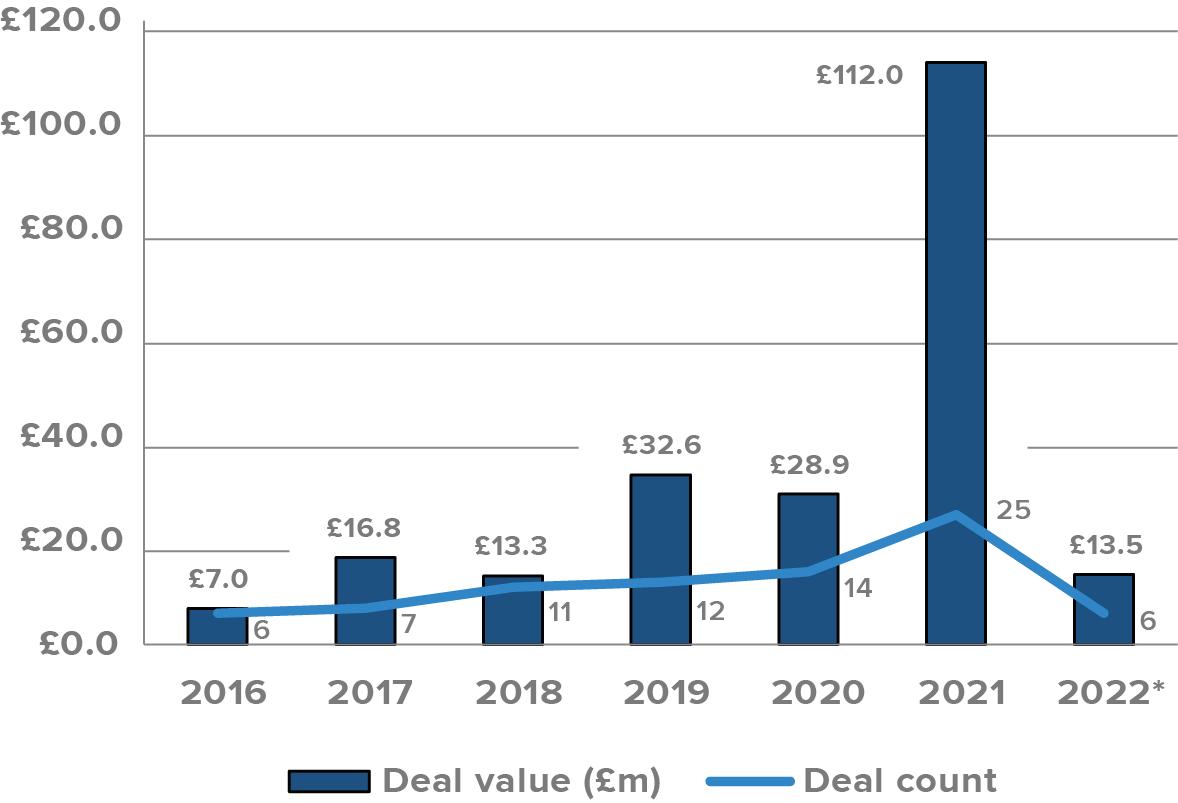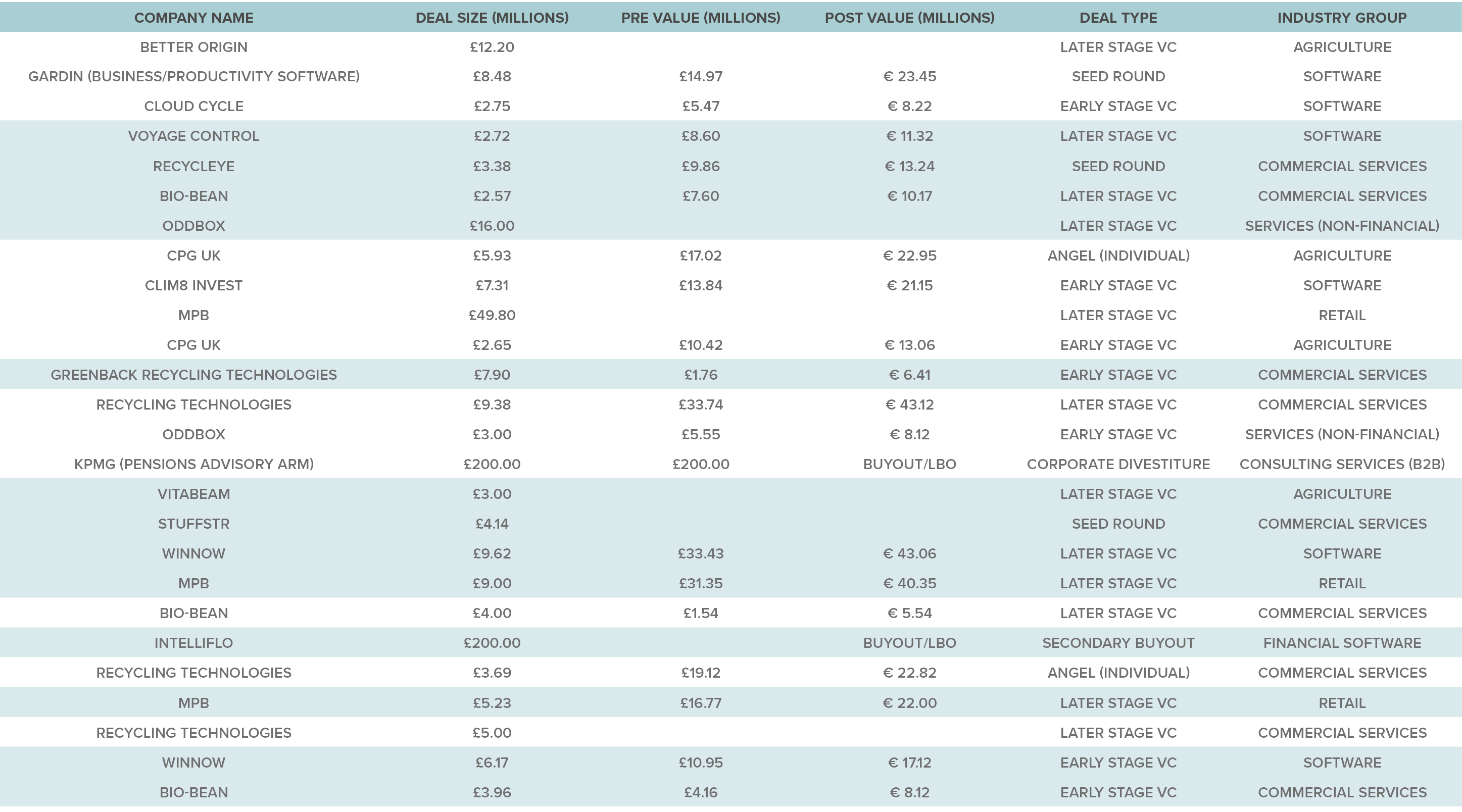Some of the world’s most iconic businesses were founded following times of crisis, and this time will be no different, according to venture capital investors, who believe the next wave of winners will be those that have circularity at the heart of their business models.
The circular economy has been gaining traction for several years and is now seen by people in governments and boardrooms as a key component to addressing issues around waste. It is essentially a system that aims to reduce waste and pollution by recycling and reusing products and requires a change in business models to create circular systems of production.
It is an enormous business opportunity to create
a company that is sustainable by design
Ian Nolan, Circularity Capital
Governments in both the UK and Europe set out policies to encourage the growth of the circular economy, as it not only addresses climate change concerns but can also offer significant economic benefits. Indeed, the Department for Environment, Food and Rural Affairs calculates that UK businesses could benefit by up to £23bn per year through low-cost or no-cost improvements in the efficient use of resources.
For investors, identifying the businesses that are driving circularity early on can offer significant returns.
UK venture capital deal activity: Circular Economy

Last year saw the highest amount of capital deployed into circular economy startups in the UK, reaching £112m across 25 deals, up from £28.9m in 2020 in 14 transactions. This is according to data from PitchBook.
‘There is a real explosion of activity as people are realising not only that there is an imperative, but it’s also an enormous business opportunity to create a company that is sustainable by design,’ said Ian Nolan, founding partner at Circularity Capital.
‘We think sustainability is not cyclical or fashionable. The drive to have more sustainable business models are going to get more and more important over time. You couldn’t have a more long-term tailwind for your business and that gives you a competitive advantage.’
Circularity Capital, founded in 2015, closed its debut fund in 2019 at its hard cap of £60m, after receiving a cornerstone investment from Axa Investment Managers.
The company closed its second fund, dedicated to investing in the circular economy, in April, raising €215m (£183m).
To date, the firm has made eight investments from its first fund and two investments from its second. This includes the group’s most recent investment in The Bike Club, a company that aims to make cycling more affordable and sustainable by creating a subscription service for children’s bikes.
Success after ‘massive disruption’
Another group focusing on investments in the circular economy is Octopus Ventures. In addition to looking for such businesses across its various sector teams, the firm has just launched a Future Generations fund to invest in businesses that are helping to build a more sustainable planet.
‘Covid has refocused people towards circularity and sustainability. What it has also done is it’s driven a lot of people to innovate,’ said Matthew Chandler, investment manager at Octopus Ventures.
Leading venture capital deals

‘A lot of people who previously didn’t have the motivation before have it now. When you’ve had very successful businesses in the past, it often comes during times immediately after a massive disruption.’
For Chandler, the important thing is for circularity to be at the centre of business models. Startups that do this include second-hand apparel rental business Hurr; Olio, which allows volunteers to collect food from grocers that would have been thrown away to redistribute it to their communities for free; and most recently Lollipop, an AI-driven online grocery marketplace that aims to reduce food waste.
But he warns that investors have to be patient with circular business models, as they can take longer to get off the ground and attract attention. There is also a need to build up the right infrastructure to enable such businesses. This means that valuations can also be at attractive levels.
In Nolan’s view, the biggest challenge for such startups is innovation.
‘The costs of a lot of the waste and environmental degradation of linear business models are socialised, so businesses don’t pay the cost. They are optimised for maximum business profitability. Only the most innovative companies can compete with that,’ he said.

